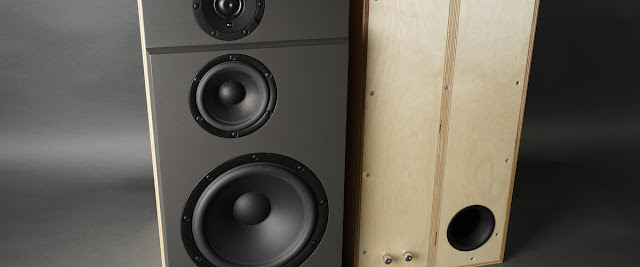Gotta Go Faster, Part 3.
The first logical block - Input selection and button debounce can be done in many ways but this is how I solved it. It persists the input selection between power cycles but software based debounce and the controlling a set of relays from a micro controller is still a bit flaky. I would prefer a pure hardware solution for input selection if I had to do it all over again.
The code is quite straight forward and I think it speaks for itself in combination with my previous post outlining the support classes in "SupportClasses.h". I use four push buttons as a set of radio buttons for input selection and a toggle switch to select between two different modes. The code is quite easy to adapt to any number of buttons or switches.
// PIN const uint8_t INPUT_PINS[] = {2, 3, 4, 5}; const uint8_t MODE_PIN = 6; // pin 8 used for I2S IN1 on Teensy 4.0 const uint8_t OUTPUT_PINS[] = {16, 17, 18, 19}; // MEM const uint8_t BUFFER_LEN = 20; const uint8_t BUFFER_ADR = 0x10; // BTN const uint8_t NUM_INPUT = sizeof(INPUT_PINS) / sizeof(INPUT_PINS[0]); const uint8_t DEF_INPUT = 0; // ETC const uint16_t POWERUP_MS = 2000; const uint8_t UPDATE_FPS = 60; const uint8_t UPDATE_MS = 1000 / UPDATE_FPS; #include "SupportClasses.h" bool altMode = false; Persistent<uint8_t> selectedInput; Debounce modeButton; Debounce inputButton[NUM_INPUT]; // set selected output and save to eeprom void setOutput(uint8_t selection) { selection = selection < NUM_INPUT ? selection : DEF_INPUT; for (byte i = 0; i < NUM_INPUT; i++) { if (selection == i) { digitalWrite(OUTPUT_PINS[i], HIGH); } else { digitalWrite(OUTPUT_PINS[i], LOW); } } if (selection != selectedInput.get()) { selectedInput.put(selection); } } // input selection callback void inputCallback(uint8_t pin, uint8_t mode) { if (mode == LOW) return; for (byte i = 0; i < NUM_INPUT; i++) { if (pin == INPUT_PINS[i]) { setOutput(i); break; } } } // mode selection callback void modeCallback(uint8_t pin, uint8_t mode) { altMode = (mode == HIGH); } void setup() { // init output pins and input buttons modeButton.setup(MODE_PIN, modeCallback); for (byte i = 0; i < NUM_INPUT; i++) { pinMode(OUTPUT_PINS[i], OUTPUT); inputButton[i].setup(INPUT_PINS[i], inputCallback); } // get persisted data selectedInput.setup(DEF_INPUT, BUFFER_ADR, BUFFER_LEN); // output selected input setOutput(selectedInput.get()); } void loop() { modeButton.update(); for (byte i = 0; i < NUM_INPUT; i++) { inputButton[i].update(); } }






